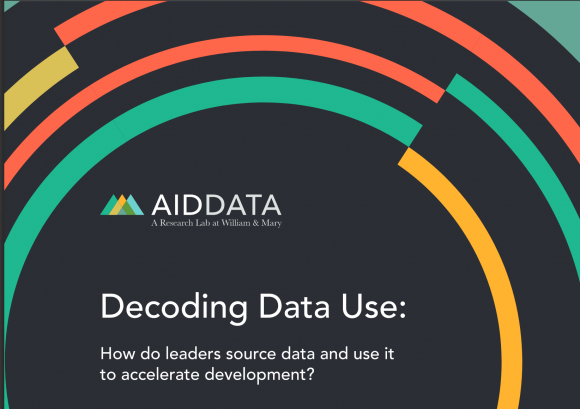
Evidence on the drivers of participation, legitimacy in government, social accountability impacts and more in this month of links and findings civic tech research.

Aid Data's new report paints a detailed picture of how government and civil society leaders around the world are using data for decision making. National statistics demand a lot of attention. Civil society and citizen generated data aren't as prominent as ardent believers in the data revolution might have hoped.
Firstly: policy makers say that readability is the most imp thing for getting your research used for decision-making, + more tips from @fp2p. Just getting that out there. Findings: Research on National Integrity Systems in New Zealand and the UK suggest that NIS impact is limited and disparate, while data analysis across 51 countries from 2003-2010, suggests that ICTs, transparency and anti...
Findings Research on nearly 3 decades of democratic innovation and e-participation in Latin America has some interesting findings (Brazil, Colombia, Mexico and Peru). According to an Open Democracy blogpost (the actual project’s website is down): civil society participation programming uses tech more often than not, smaller countries are less prolific than large countries in terms of tech...
Findings There’s lots of findings on inclusion and exclusion this week. A study of Fix My Street platforms in Brussels suggests that they “marginalize low-income and ethnically diverse communities,” while a Dutch survey suggests that citizen forums aren’t increasing political engagement as much as we’d like. primarily due to problems with representation and drop-out...
Findings Politically marginalized groups have less access to the internet, worldwide. This shocker based on network measurements over 8 years and identification of politically relevant groups as defined by the Ethnic Power Relations (EPR). The relationship between online and offline activism is messy, according to a survey of 1023 adolescents from five Balkan countries, while a year-long study in...
Papers and Findings Do global norms and clubs make a difference? A new dissertation assesses implementation of EITI, CSTI and OGP in Guatemala, the Philippines and Tanzania to conclude that multi-stakeholder initiatives can strengthen national proactive transparency, but have little impact on demand-driven accountability. There are interesting insights on open washing and the importance of high...